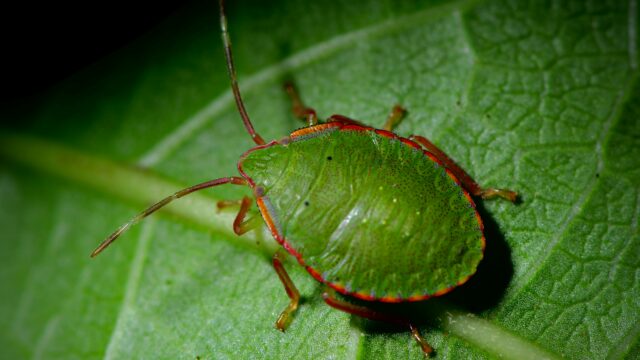Slugs! Aphids! The names alone bring a creepy-crawly feeling to mind, especially if these pests have been sabotaging your garden! But rest assured, if we utilize appropriate ways to discourage them and understand the benefits they provide in our environment, we can find ways to live together without bugging each other!
The slug is a soft-bodied mollusk rather than an insect. Its clump-like body moves along on its foot, and it secretes an oozing trail when it moves. Unlike the sea mollusk, the slug does not require a shell for protection. Slugs must always stay moist to survive so they love wet, dark areas. They can be found underneath surfaces, hiding in large wood chip mulch or at the base of plants. They are active at night so it can be difficult to know if they are damaging the garden. A quick trap of laying cardboard on bare ground around the base of plants and turning it over each morning to see if they have accumulated can help. Scraping the slugs off and removing them from your garden can offer control. The trap can be reset until the problem subsides. Other options include the application of diatomaceous earth or crushed oyster shells around the base of plants. Both damage the soft body of the slug and will also deter them from entering the area.

Aphids are another nuisance that can wreak havoc in the garden. These true bugs have straw-like mouthparts that they use to pierce and suck the fluids from plant leaves and flowers. Most abundant in spring, they can rapidly reproduce and colonize a plant, with the adult life cycle averaging one month. They favor all sorts of plants and damage them very quickly, but as summer temperatures rise, their population decreases. The best way to control them is to use a natural insecticidal soap spray called Safer Soap. This solution will control aphids by penetrating their outer layer and drying them out without damaging the plant or beneficial insects which feast on them as well.
Though slugs and aphids may look off-putting, they do offer benefits to the garden that should not be overlooked. Slugs are a food source for toads and birds and also create aeration in soils when tunneling. Aphids are an excellent food source for beneficial insects in the garden such as ladybird beetles and lacewings. They also have an interesting relationship with ants, which will protect them from predators in exchange for the sweet excretion they produce called honeydew.
These rhythms of nature are in place to control populations and until out of balance, things should be manageable. If environmental factors such as an abnormal abundance of rain occur, both of these populations are likely to increase, but with some natural products and predators and a little extra attention a gardener can rebalance the wheel with minimal damage to the environment.
